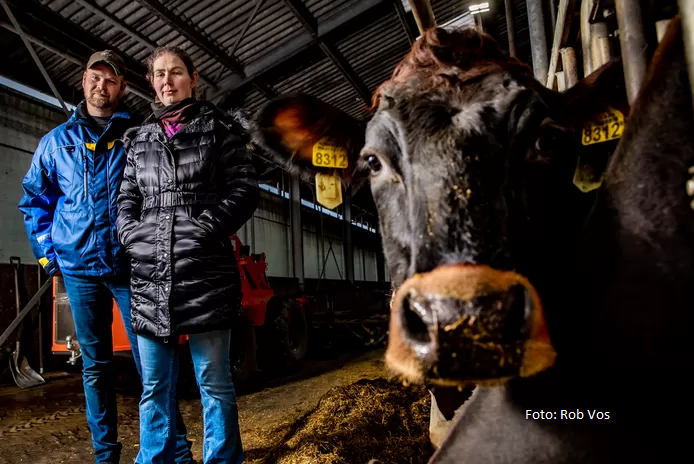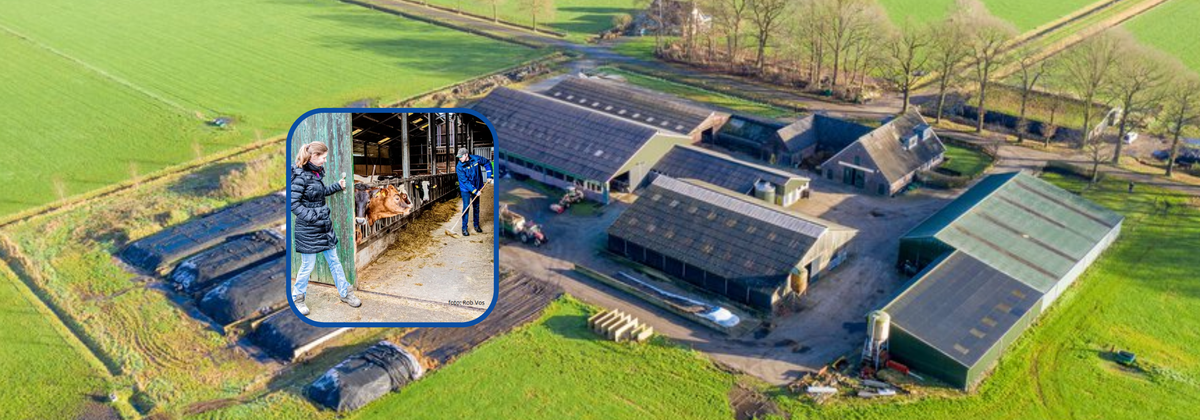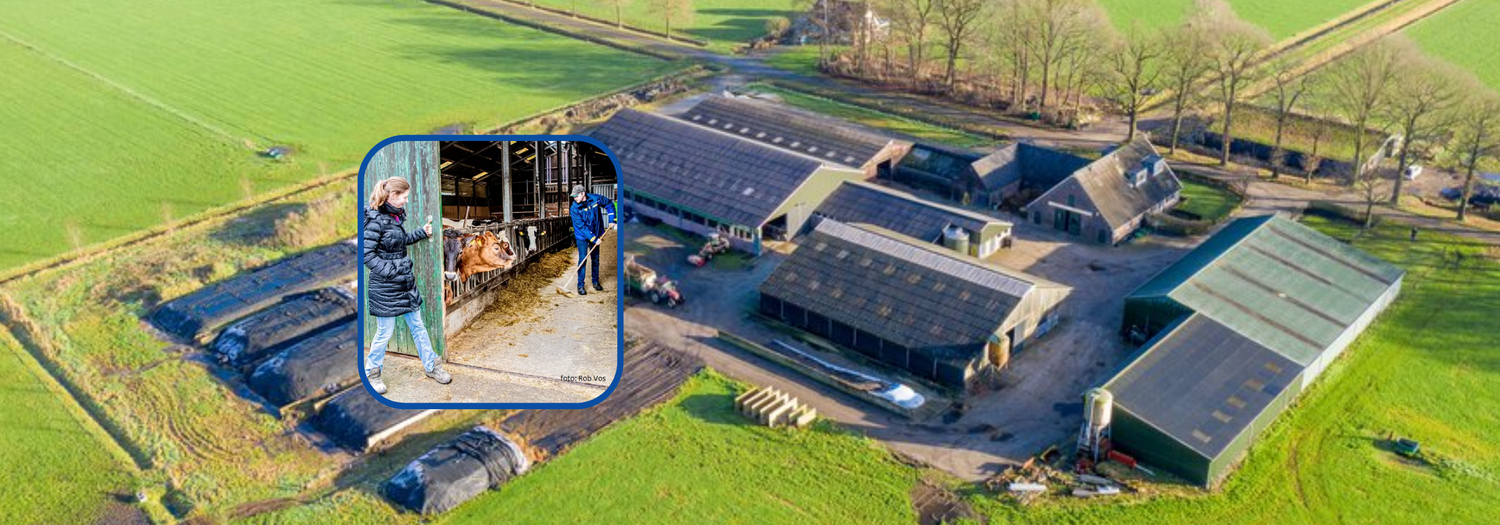Expensive phosphate rights, the nitrogen crisis, solar fields and new nature on fertile soil. More and more farmers no longer see a future in the Netherlands and seek refuge across the border. “They see us as food producers and not as environmental polluters.”
In the outskirts of Hall, near Brummen, is the farm of Gerben (39) and Rianne (34) Hartink. The couple milks a hundred cows in the yard where Rianne was born and raised. They are satisfied and can live with it. Nevertheless, the farm with 70 hectares of land is for sale. “Agricultural policy in the Netherlands does not offer a point on the horizon to work towards,” says Gerben. “It feels like we are unwanted and unappreciated.”
So the couple makes a drastic decision. The Hartinks are going to emigrate to Canada. ,,We think very carefully about this step, because it concerns the company in which we invest a lot of time and energy. Our life's work.”

Doubled
Frits Bennink notices that more farmers are seeking refuge abroad. The resident of the hamlet of Pieperij near Balkbrug owns emigration specialist Interfarms. “It is estimated that there are 100 to 150 farmers per year, compared to 50 a few years ago. You can certainly say that the number of farmers who emigrate every year has doubled.”
The reason? “Emigration comes in waves. Almost ten years ago, after the abolition of the milk quota, livestock farmers saw more opportunities for development, but the introduction of the phosphate right resulted in a new production limitation. In addition, there are the nitrogen problems and the negative image that is experienced about how farmers are viewed,” explains Bennink.
What is striking: "These are mainly farmers who are located near a Natura 2000 area," says Bennink. “They know that they will have to move in the future anyway. Since the possibilities within our own country are limited and the government is seen as unreliable, they cross the border. There they also have to deal with environmental legislation, but that is a lot more understandable.”
Lifestyle
The current farm is located a few kilometers from the Veluwe, a protected nature reserve. The measures that the government must take to limit nitrogen emissions can have major consequences for farmers in the area. "The reason for emigrating is increasing because if we don't go now I don't know if we will still be farming in five to ten years." Rianne emphasizes, though: "It is not just because of the regulations that we emigrate, but mainly because of a lack of prospects for the future. Farming is not a profession for us, but a lifestyle. It will be taken from us here.”
Ten years earlier
Departing farmers mainly go to Germany, Denmark, Sweden and Canada. “These are not emigrations as you see in Ik Departure”, Bennink emphasizes. ,, Departing from an impulse is rare among farmers, even when they are 'done' with the Netherlands. They talk to colleagues in the intended country, visit the site, think carefully about selling their farm, take the assets with them and apply tax regulations.”
So are Gerben and Rianne. In the past two years, they visited an emigration fair, spoke to specialists, traveled to Canada and met Dutch farmers. "When asked what they would do differently, they said: leave ten years earlier," Gerben smiles. “We also deliberately visited regions that we had doubts about. Purely to see it with your own eyes.” The choice falls on Prince Edward Island, in eastern Canada.
"We felt right at home there. The government and residents see us as food producers and not as polluters of the environment," notes Rianne. Gerben: "It is an area with a similar climate as in the Netherlands. More land is needed to feed the cows, but because the yield is generally higher, we will keep fewer cattle, fifty cows. Hopefully, we will have more time for ourselves soon.”
Exciting months
That suits Canada, Bennink knows. Farmers who want to grow go to Germany or Denmark. Options that Gerben and Rianne also considered: "These are countries with less strict environmental requirements than in the Netherlands, but still part of the European Union. That doesn't feel right.” Bennink states: "Farmers who are leaving now are good entrepreneurs. I think that in twenty to thirty years, politicians will realize what kind of mistakes they are making.” Gerben and Rianne hope to leave those worries behind. This summer they want to make the crossing to Canada. The only remaining obstacles are the visas and the sale of the farm. “Otherwise it will not happen, so that is still exciting.”

Gerben and Rianne's dairy farm in Hall in Gelderse with 100 dairy cows and approx. 38 hectares of their own land. Click here for more information about their company for sale.
“A farm like this one is easy to sell, although it is a less interesting time for young farmers to start and the future is somewhat uncertain close to Natura 2000 area,” says Nienke Hemeltjen of VSO Makelaars in Apeldoorn. “This is a great location for growers, for example, if they have been bought out at another location.”
